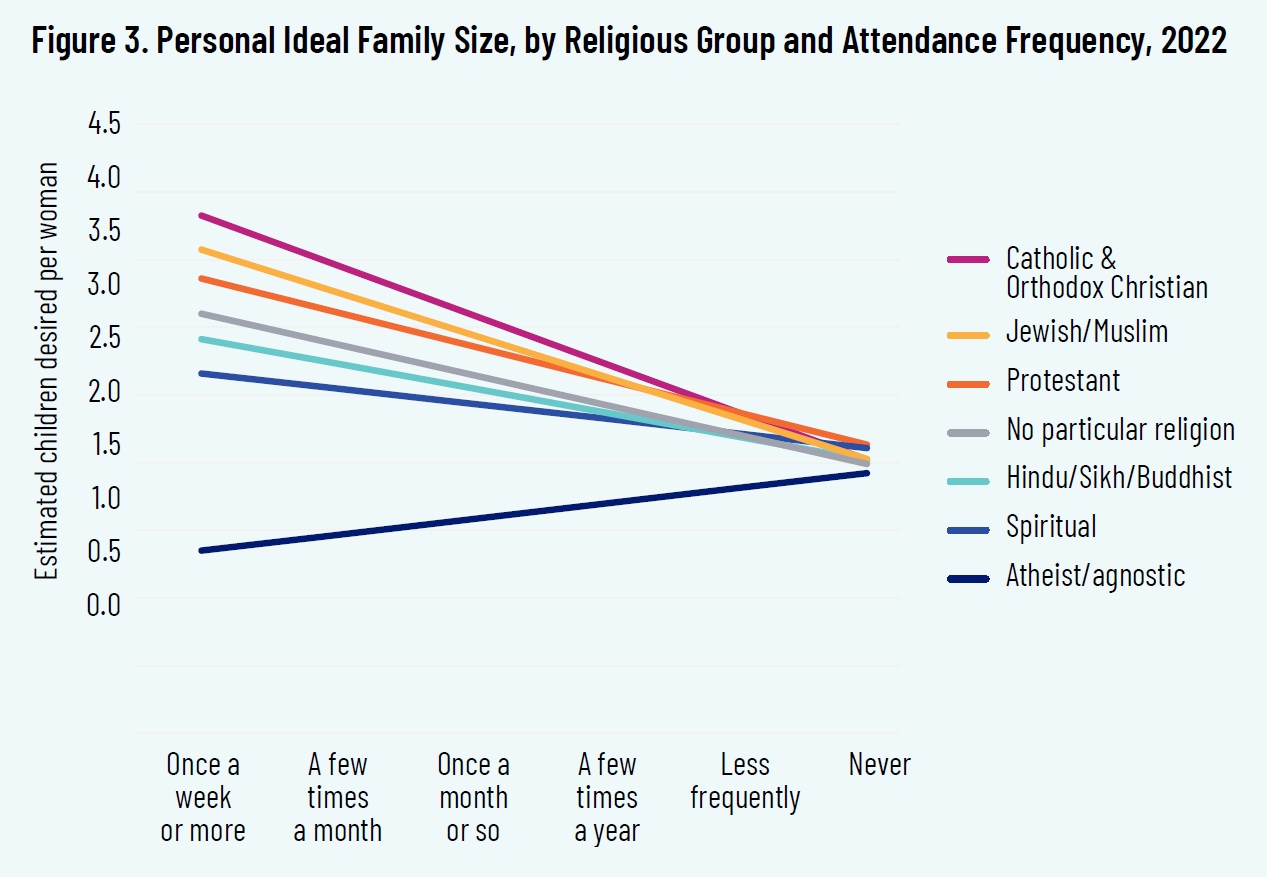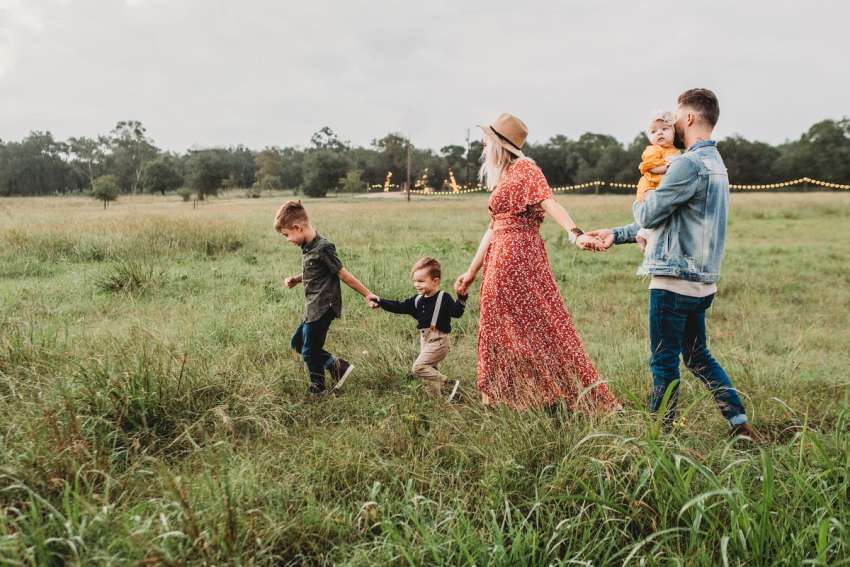But women across religious and non-religious lines want more children than they are having, says demographer and Cardus Senior Fellow Lyman Stone.
“Religiosity in Canada, particularly among the Abrahamic faiths, is pro-natal,” Stone told The Catholic Register. “Religious women in Canada do have more children.”
Stone’s “Religion and Fertility in Canada,” shows that women aged 35-44 who attend a religious service at least once a month report having an average of 2.5 children whereas women of the same age who never attend a religious service have on average 1.7 children.
The data is explainable, Stone said, not only by the desire of “religious women” for more children but also by their marriage patterns and a more optimistic view of their ability to cope with raising children during stressful times.
“Religious women want more children, tend to get married younger, and when they encounter life’s difficulties, they tend to be less likely to interpret those difficulties as reasons not to have kids,” said Stone.

There seem to be no meaningful differences in women’s employment across the different groups, but they do diverge in how they interpret their life conditions, he added.
“Religious women experience less worry and anxiety about a host of different individual and global issues. Indeed, even when religious and nonreligious women have identical financial circumstances, they report dramatically different degrees of financial worries.”
In January 2023 Cardus published, “She’s (Not) Having a Baby,” a report that showed half of Canadian women have fewer children than they desire.
Across cohorts, Canadian women said they desired to have around 2.2 children but expect to have only 1.9 kids.
This follow-up report, published in July, demonstrates that, although they do have on average more children than their non-religious counterparts, the discrepancy between the desired number and the real number of children applies even to “religious women.” Despite having an average of 2.5 children, Catholic and Orthodox women who attend Mass weekly want an average of almost four children, Jewish and Muslim women who attend religious worship once a week want an average of 3.5 children, and weekly church going Protestant women want an average of about three children.
Overall, close to 70 per cent of religiously observant women aged 40-45 reported having fewer children than they desired.
“There are large shares of women in all groups who would have liked to have had more children and there is a widely shared burden of life-course mismatch. There was not enough time to have the family they wanted,” said Stone.
According to the Statistics Canada website, the country’s fertility rate hit an all-time low of 1.4 in 2020. In that year, “Canada also experienced the lowest number of births since 2007 and the greatest year-over-year decrease in births (-3.6%) since 1997.” The rate required for non-migration population replacement is 2.1.
When asked if there were some policy takeaways from this recent research, Stone said its first purpose was “descriptive.”
“Any debate about family policy will be better, more productive, if we understand the situation as it exists.”
But Stone felt there was at least one potential recommendation. With the clear link between marriage and higher fertility rates, government should implement policy that supports marriage.
“When we focus on family policy, we often focus on items that have big price tags, like child allowance, maternity leave, child care that can cost billions and billions of dollars, but we should have a basic realization that culture matters and that sometimes governments, either intentionally or unintentionally, influence cultural values,” said Stone.
When government policies are designed to support individuals, the common knock-on effect is to create handicaps for married couples.
“Neutrality is not an option, every time the government does something for a child, that is a cultural statement about what kind of family is good, excellent and praiseworthy,” said Stone.
A third report, due to be released at the end of the year, will examine “attitudes towards the big existential risks, like climate change and over-population, and how that relates to fertility.”

